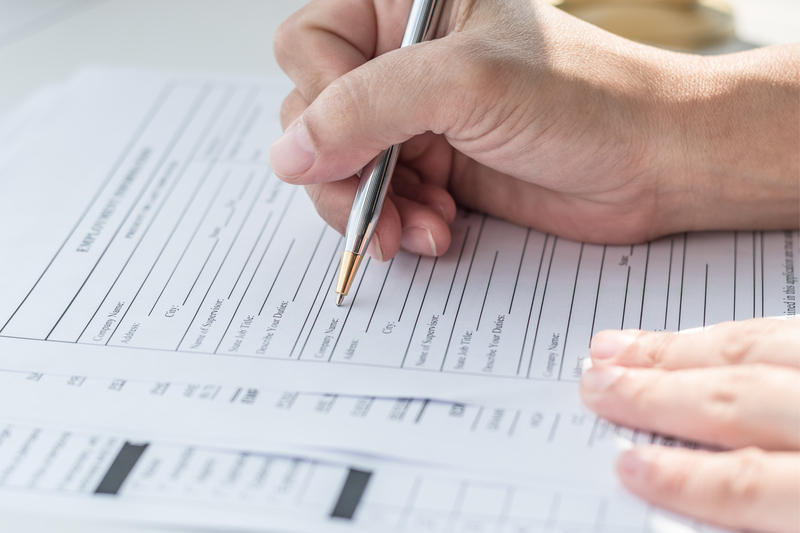Harness Your Habits to Reduce Plastic Waste: A Comprehensive Guide
Plastic waste is arguably one of the most pressing environmental issues of our time. From polluted oceans to overflowing landfills, the impact of *our everyday choices* echoes across the planet. The good news? Every individual can make a significant difference! By harnessing your habits to reduce plastic waste, you can contribute to a cleaner, healthier, and more sustainable world. This comprehensive article explores powerful strategies, practical tips, and key insights to help you minimize your plastic footprint and inspire others to join the movement.
The Plastic Problem: Why Your Habits Matter
Globally, we produce over 300 million tons of plastic annually, yet only about 9% is recycled. The rest ends up in landfills, waterways, or is incinerated, releasing harmful chemicals into the environment. From single-use bottles to packaging, every piece of plastic you use leaves a mark.
Our daily habits drive this consumption. By understanding--and altering--our routines, we can systematically reduce plastic dependency. This behavior change, when adopted collectively, sparks powerful ripples toward a plastic-free future.

Understanding How Habits Shape Plastic Use
Every day, habits guide our choices, often without conscious thought. Whether grabbing a coffee in a takeaway cup or purchasing produce wrapped in plastic, these routines accumulate over time. To harness your habits to reduce plastic waste, you must first become aware of where plastic sneaks into your life.
- Morning routines: Disposable razors, shower gels in plastic bottles, pre-packaged breakfast foods.
- At work or school: Single-use cutlery, bottled water, plastic-wrapped snacks.
- Grocery shopping: Plastic bags, cling wrap, produce packaging.
- Dining out: Takeout containers, straws, condiments in sachets.
Pause and ask: Where can I swap out plastic for reusable, sustainable alternatives?
10 Practical Habits to Slash Your Plastic Waste
1. Embrace Reusables Everywhere
- Carry a reusable water bottle: Cut down on plastic bottles by bringing your own everywhere.
- Bring your own bags: Keep reusable shopping bags handy for groceries or errands.
- Switch to reusable containers: Use glass or stainless steel for food storage and lunches.
- Opt for a reusable coffee cup: Many cafes now offer discounts for bringing your own cup!
2. Refuse Single-Use Plastics
- Say no to straws and plastic cutlery: Request "no straw" when ordering drinks and use your own travel cutlery set.
- Decline plastic bags: Whether at the grocery, clothing, or electronics store, bring your own bags.
- Avoid products with excessive packaging: Choose alternatives whenever possible.
3. Shop Smart and Buy in Bulk
Reduce plastic waste by purchasing items in bulk or in larger quantities, which typically use less packaging overall. Look for zero-waste stores in your area, where you can fill your own containers with pantry staples.
4. Choose Plastic-Free Alternatives
- Switch to bar soap instead of body wash: Bar soap often comes in cardboard or paper.
- Try shampoo and conditioner bars: Ditch plastic bottles for these long-lasting alternatives.
- Opt for bamboo toothbrushes: Replace plastic toothbrushes with biodegradable ones.
- Use beeswax wraps: Swap cling film for reusable beeswax wraps in the kitchen.
5. Adopt a "Repair and Reuse" Mindset
Instead of throwing out plastic items when they break or become less useful, try repairing or repurposing them. Stitch up a torn reusable bag, or turn an old plastic container into a planter. This extends product life and reduces the need for new plastic purchases.
6. Support Sustainable Brands
- Research before you buy: Choose companies committed to reducing plastic and using eco-friendly packaging.
- Opt for glass, cardboard, or metal packaging: These materials are more likely to be recycled.
- Reward businesses that offer refill stations or packaging take-back programs: Your money supports their mission.
7. Rethink Takeout and Delivery
Food delivery is a major source of single-use plastic. When possible, bring your own containers for takeaway orders or ask restaurants to skip plastic utensils and containers. Some cities now offer reusable container services for takeout--take advantage!
8. Get Involved in Community Initiatives
- Join local cleanups: Participate in neighborhood or beach cleanups to actively remove plastic waste.
- Advocate for policies: Support bans on single-use plastics and push for municipal composting.
- Organize educational sessions: Spread awareness about the impact of plastic waste and share your strategies.
9. Educate Yourself and Others
Knowledge is power. Stay updated on the latest environmental tips and information on reducing plastic waste. Share articles, host discussions, and inspire those around you.
10. Track and Celebrate Your Progress
Keep a simple log of your plastic use--what you cut out, swapped, or replaced. Celebrate small wins. This positive reinforcement will help you embed these sustainable habits into your routine.
The Ripple Effect: How Your Choices Inspire Change
When you reduce your plastic waste by harnessing your habits, you become a catalyst for broader change. Your actions influence family, friends, colleagues, and even businesses. Social proof is powerful--when others see your dedication, they're more likely to follow suit.
Spotlight: Real-Life Habit Shifts
- Families swapping lunch box plastics for reusable bento boxes.
- Offices introducing "Bring Your Own Mug" coffee stations.
- Students advocating for plastic-free campuses with refill stations and bulk snack programs.
- Restaurants rewarding customers for bringing their own containers.
Every collective effort counts. Start with yourself--watch as your circles gradually embrace smarter, greener routines.
Overcoming Common Barriers to Reducing Plastic Waste
Transitioning to less-plastic living isn't always easy. Here's how to navigate the most frequent obstacles:
- Convenience: Single-use plastics are easy to grab and cheap. Combat this by preparing reusable options ahead of time--keep bags and utensils in your car or bag.
- Availability: Some sustainable alternatives aren't always accessible or affordable. Start small and swap what you can. Each step matters.
- Forgetfulness: Build reminders into your routine. Place reusable bags by your door, pin a sticky note to your wallet, or set a phone reminder before shopping.
- Pressure from others: Not everyone will understand right away. Lead by example and share your reasons--respectful conversations can spark genuine interest and change.
Beyond the Basics: Advanced Tips to Harness Habits for Less Plastic
Ready to level up your plastic reduction? Here are some advanced strategies:
Practice Mindful Consumption
Before making a purchase, pause and ask: Is there a plastic-free version of this? Do you truly need it, or is there a better, low-waste option?
Join or Start a Zero-Waste Challenge
Commit to a week or month of zero single-use plastics. Involve friends, share progress online, and offer tips. This creates accountability and exposes hidden plastics in daily life.
DIY Household Products
Many cleaning and personal care products can be made at home using simple ingredients in glass jars. This not only reduces plastic but also exposure to harsh chemicals.
Compost Food Waste
Many cities are now introducing composting programs. Properly composting food scraps reduces the need for plastic trash bags and supports a circular food system.
Write to Companies
Contact your favorite brands to request better packaging options and encourage them to innovate. Your consumer voice counts!
The Role of Digital Tools in Building Sustainable Habits
Leverage technology to amplify your impact:
- Apps for tracking plastic use: Tools like My Little Plastic Footprint or JouleBug help you monitor and minimize usage.
- Refill locator apps: Find local shops or fountains for refilling water bottles or containers.
- Community groups and forums: Join local eco-initiatives on Facebook, Nextdoor, or Meetup to exchange tips and motivation.

Frequently Asked Questions: Reducing Plastic Waste Through Daily Habits
Why is reducing plastic waste important?
Plastic pollution harms wildlife, ecosystems, and human health. Microplastics now contaminate our water, food, and even air. By slashing plastic use, you help protect the planet for generations to come.
What if sustainable options are expensive?
Start small. Even one swapped item per month adds up. Over time, reusing products saves money--think of how many disposable bottles are replaced by a single quality water bottle!
Can my individual efforts really make a difference?
Absolutely. Every action counts. Your choices inspire others and build momentum for widespread change. Collectively, even small switches add up to big results.
How can I spread awareness in my community?
- Host workshops or screening nights for environmental documentaries.
- Start a local zero-waste group.
- Partner with local businesses to promote reusable alternatives.
Conclusion: Small Habits, Massive Impact
Harnessing your habits to reduce plastic waste is not just about swapping products--it's about creating a lifestyle that prioritizes sustainability. Every step you take builds a brighter, cleaner future for yourself and future generations.
Start today: pick one new habit to reduce your plastic usage. Track your progress, celebrate your success, and invite others on the journey. Together, let's create a ripple effect strong enough to turn the tide against plastic pollution.
Will you be the change our planet needs?